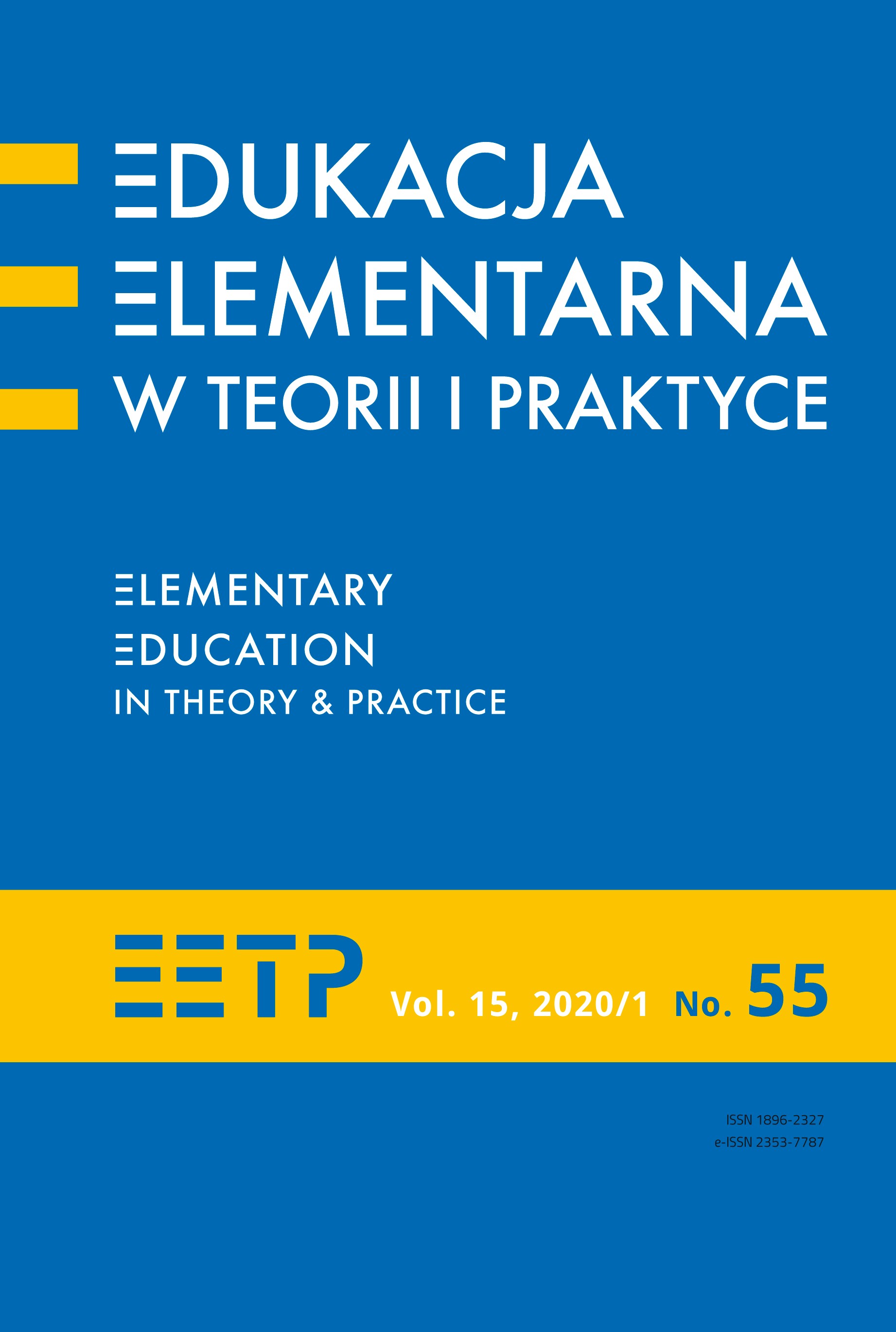Supporting Homeschooling with Modern Information and Communication Technologies
Abstract
This paper aims at reviewing the opportunities provided by new digital media in the contemporary educational environment in the context of the needs of parents who homeschool their children. The subject is important as it seems that the development and easier access to new information and communication technologies (ICT) may become both a factor that influences parents’ decision to take up homeschooling and an element that significantly supports the very educational process. In the article; the authors are trying to answer the question how; based on new information and communication technologies; we can build a personalized educational environment for homeschooling; and which digital tools and resources can be used for this purpose. In the first part; new trends in education and homeschooling development were described. Then; the authors classified and discussed online services and tools that may be useful in homeschooling. They were arranged according to the functions they perform; taking into account information resources; didactic materials and aids; as well as means of digital communication. Also; the authors provided the results of surveys carried out among Polish homeschooling families that were related to the use of new digital technologies. In the conclusion the authors enumerated the advantages of digital educational environment for homeschooling.
References
Alias N.; Rahman M.N.A; Siraj S.; Ibrahim R. (2013). A Model of Homeschooling Based on Technology in Malaysia; „The Malaysian Online Journal of Educational Technology”; Vol. 1; Issue 3; s. 10-16; http://www.mojet.net/frontend/articles/pdf/v01i03/v01i03-02.pdf (dostęp: 20.01.2020).
Bartosik P. (2009). Dlaczego edukacja domowa; [w:] M. Zakrzewska; P. Zakrzewski (red.); Edukacja domowa w Polsce. Teoria i praktyka; Warszawa: Oficyna Wydawniczo-Poligraficzna „Adam”; s. 49-61.
Budajczak M. (2004). Edukacja domowa; Gdańsk: Gdańskie Wydawnictwo Psychologiczne.
Grodecka K.; Śliwiński K. (2014). Przewodnik po Otwartych Zasobach Edukacyjnych; Fundacja Nowoczesna Polska; wersja 5; http://koed.org.pl/wp-content/uploads/2014/05/OER_handbook_v5_online1.pdf (dostęp: 20.01.2020).
Hojnacki L. (red.) (2011). Mobilna edukacja. M-learning; czyli (r)ewolucja w nauczaniu. Warszawa: Think Global sp. z o.o.; http://www.edunews.pl/images/pdf/Mobilna_edukacja_nauczyciel_2011.pdf (dostęp: 20.01.2020).
Hojnacki L. (red.) (2013). Mobilna edukacja. (R)ewolucja w uczeniu się – poradnik dla osób uczących się. Warszawa: Think Global sp. z o.o.; https://edustore.eu/pliki/mobilna-edukacja-poradnik-dla-uczacych-sie.pdf (dostęp: 20.01.2020).
Homeschool Portfolios. Special Report. Homeschool.com; https://www.homeschool.com/SpecialReports/Download/HomeschoolPortfolios.pdf (dostęp: 20.03.2017).
Kędra M. (2016). Wycieczki pedagogiczne. Freinet; http://edunews.pl/system-edukacji/nauczyciele/3447-wycieczki-pedagogiczne-freinet-1 (dostęp: 20.01.2020).
Kołodziejczyk W.; Polak M. (2011). Jak zmieniać się będzie edukacja. Wyzwania dla polskiej szkoły i ucznia; Warszawa: Instytut Obywatelski.
Pukowska K. (2017). Edukacja domowa pod lupą – jak naprawdę wygląda nauka dzieci w domu; http://www.juniorowo.pl/edukacja-domowa-lupa/ (dostęp: 20.01.2020).
Puślecki W. (1996) Kształcenie wyzwalające w edukacji wczesnoszkolnej; Kraków: Oficyna Wydawnicza „Impuls”.
Ray B.D. (2011). Historia; rozwój i filozofia edukacji domowej; [w:] J. Piskorski (red.); Szkoła domowa Między wolnością a obowiązkiem; Warszawa: Instytut Sobieskiego; s. 19-25. http://sobieski.org.pl/wp-content/uploads/Szko%C5%82a-domowa-IS.pdf (dostęp: 20.01.2020).
Robinson K.; Aronica L. (2012). Uchwycić żywioł. O tym jak znalezienie pasji zmienia wszystko; Kraków: Wydawnictwo Element: Kraków.
Robinson K.; Aronica L. (2015). Kreatywne szkoły; oddolna rewolucja; która zmienia edukację; Kraków: Wydawnictwo Element.
Spuła M. (2016) Wykorzystanie nowych technologii informacyjno-komunikacyjnych w edukacji domowej; niepublikowana praca magisterska przygotowana pod kierunkiem dr Ireny Pulak; Akademia Ignatianum w Krakowie: Kraków.
Stern A. (2016). …i nigdy nie chodziłem do szkoły. Historia szczęśliwego dzieciństwa; Gliwice: Wydawnictwo Element.
Copyright (c) 2020 Elementary Education in Theory and Practice

This work is licensed under a Creative Commons Attribution-NoDerivatives 4.0 International License.
- When submitting a text, the author declares that he/she is the Author of the article (hereinafter referred to as the “Work”) and:
- he/she owns the exclusive and unlimited copyright to the Work,
- is entitled to dispose of the copyright to the Work.
Declares that it does not infringe any third party copyrights or legal rights.
Declares that there is no conflict of interest.
2. At the same time, the Author grants the Ignatianum University in Cracowa royalty-free, non-exclusive and territorially unlimited licence to use the Work in the following fields of exploitation:
- recording the Work in a hard copy, as well as on a digital or magnetic medium;
- reproduction of the Work using any technique, without limitation of the number of editions or copies;
- distribution of the Work and its copies on any medium, including marketing, sale, lending, and rental;
- introduction of the Work into a computer memory;
- disseminating the Work in information networks, including in the Internet;
- public performance, exhibition, display, reproduction, broadcasting and re-broadcasting, as well as making the Work available to the public in such a way that everyone can have access to it at a time and place of their own choosing;
- within the scope of dependent rights to the Work, including in particular the right to make necessary changes to the Work resulting from editorial and methodical development, as well as to translate the Work into foreign languages;
The licence is granted from the moment of the transfer of the Work to the Ignatianum University in Cracow. The Ignatianum University in Cracow is entitled to grant further sub-licences to the Work within the scope of the right granted. The licence is time-limited and it is granted for a period of 15 years, starting from the date of its granting.
Authors are permitted and encouraged to publish their text online (e.g. in their institution’s repository or on the institution’s website) before or during the submission process as this may lead to beneficial exchanges, as well as earlier and greater citation of the published text (See The Effect of Open Access). We recommend using any of the following portals of research associations:
- ResearchGate
- SSRN
- Academia.edu
- Selected Works
- Academic Search




